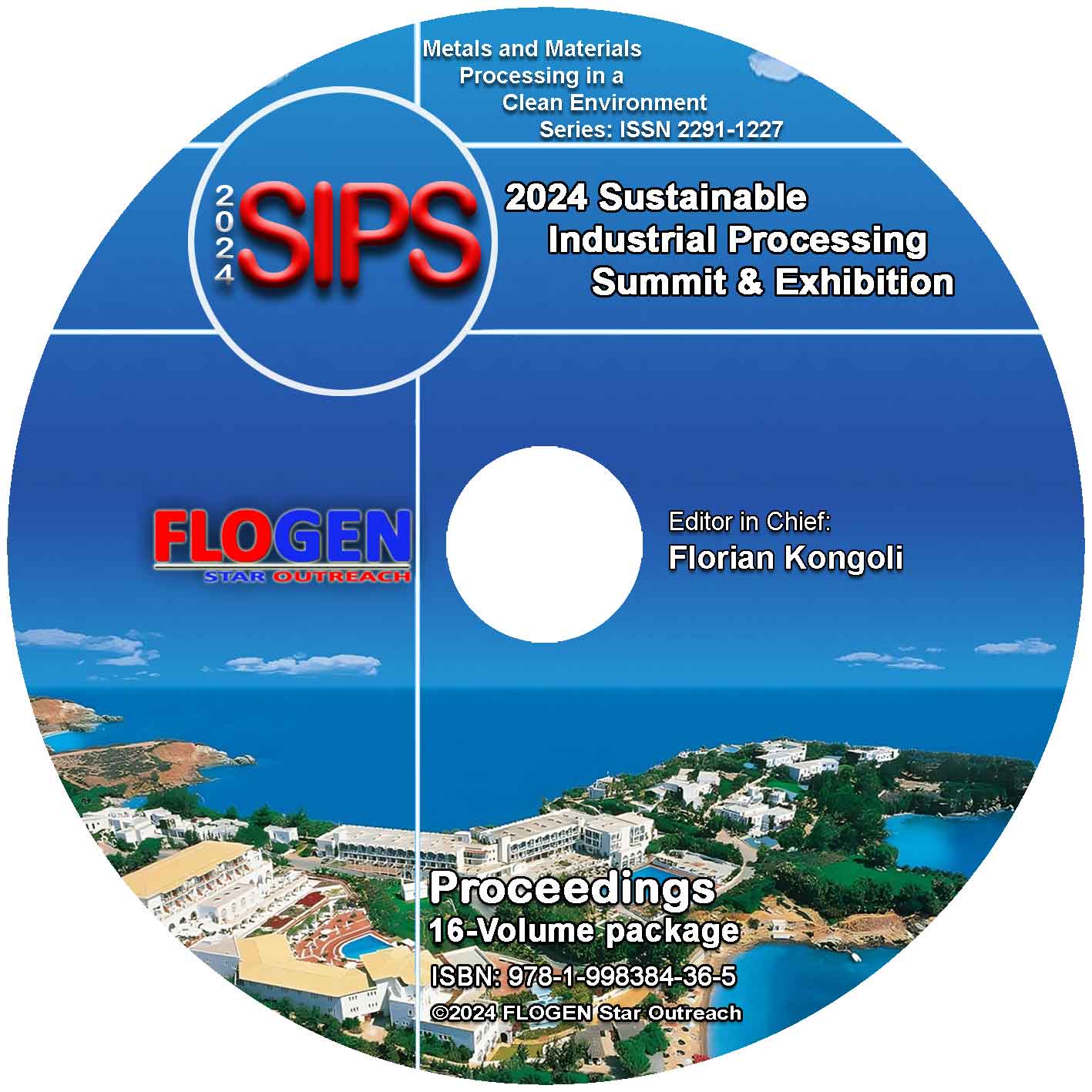2024 - Sustainable Industrial Processing Summit
SIPS 2024 Volume 1. Abe Intl. Symp. / Oxidative Stress and Technological Innovations in Medicine
| Editors: | F. Kongoli, H. Inufusa, T. Yoshikawa, C.A. Amatore, H-Y. Chen, W-H. Huang |
| Publisher: | Flogen Star OUTREACH |
| Publication date: | 23 December 2024 |
| Pages: | 218 pages |
| ISBN: | 978-1-998384-04-4 (CD) |
| ISSN: | 2291-1227 (Metals and Materials Processing in a Clean Environment Series) |

CD shopping page
FRAGRANCE POLLUTION INDUCES MULTIPLE CHEMICAL SENSITIVITY
Kazuha Fujiwara1; Scott Daniska2; David Dickerson3;1NARA WOMEN'S UNIVERSITY, Nara, Japan; 2N/A, Bethel, United States; 3N/A, Rock Island, United States;
Type of Paper: Invited
Id Paper: 88
Topic: 54
Abstract:
Background: In recent years, fragrance pollution triggered by common household items has become a global concern, contributing to the increasing prevalence of Multiple Chemical Sensitivity (MCS) worldwide [1]. Despite the rising prevalence, there is a lack of researchers and diagnostic criteria for MCS, hindering effective diagnosis and treatment.
Purpose: This study proposes several investigations and experimental methods to elucidate the factors contributing to MCS and discusses the current status of diagnostic criteria for MCS, which remain unidentified.
Methods: We estimated the number of individuals affected by MCS based on existing studies [2] and identified fragrance ingredients commonly used in everyday products. Additionally, we explored methods to visualize invisible fragrances and considered how physicians should diagnose MCS.
Conclusions: At present, more than 16 million people in Japan (about 1 in 7) are estimated to suffer from “MCS” or have “High Sensitivity” or “Semi-High Sensitivity” to Chemical Substances. Recent developments in microencapsulation technology suggests that sustained fragrance release may contribute to the increase in MCS prevalence by continuously emitting hazardous substances [3], similar to allergic reactions seen in individuals with pollen allergies. Therefore, MCS should be recognized as a condition that anyone can develop, similar to pollen allergies. To prevent MCS, essential measures such as refraining from releasing fragrances in shared spaces are indispensable.